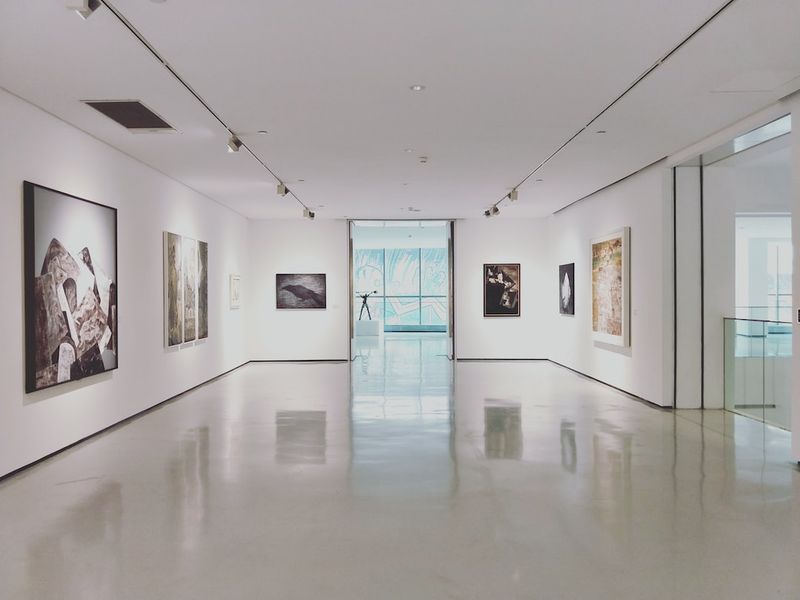Johnny Marr’s “Worst Glastonbury Moment” with The Smiths
Introduction
The news of Rick Astley teaming up with Blossoms to cover The Smiths at Glastonbury Festival has revived the memories of The Smiths’ performance at the festival in 1984. The band’s presence at Glastonbury that year showcased their immense appeal, even in their early days. In an interview with The Guardian in 2010, guitarist Johnny Marr reminisced about The Smiths’ set at the Somerset festival and shared his “worst Glastonbury moment.”
The Smiths’ Performance at Glastonbury 1984
In 1984, The Smiths, with only their debut album released earlier that year, played on the Pyramid stage at Glastonbury. Despite being relative newcomers, their music‘s gravity, driven by Johnny Marr’s arpeggiating guitar, Andy Rourke’s funk-inspired bass, and Morrissey’s sharply political lyrics, propelled the band’s rapid rise. The band closed their set with the iconic track ‘Hand in Glove,’ which sparked a stage invasion, solidifying The Smiths’ significance.
Marr described the experience as being “slightly out of their element,” as they were accustomed to playing for manic and devoted audiences who resembled supporters at a cup final. However, at Glastonbury, they performed for people who hadn’t seen them before. Marr noted that The Smiths’ songs were so fast that they managed to perform their first four songs in the time it took other bands to finish their intros. Despite the initial unfamiliarity, Marr managed to instigate a stage invasion, turning the performance into a true Smiths gig.
The Evolution of Glastonbury
Reflecting on his memories of Glastonbury, Marr remarked on the festival’s transformations over the years. He described how Glastonbury used to be a mellow and low-key event, far from the massive cultural phenomenon it has become. Marr recalled a time when Glastonbury wasn’t televised and wasn’t a career-defining moment for artists. The festival was limited to three fields, which were not fully occupied. Attendees had a choice between the “shit field,” the neglected field, or the muddy one. Marr expressed his disbelief at the current prevalence of video screens, which he considered an abomination in comparison.
Marr also commented on how the rise of rave culture played a significant role in Glastonbury‘s ascension as a cultural hub. He noted that people would gather in warehouses at the end of motorways to avoid the police, and they eventually realized that Glastonbury offered them a legal space to come together. This shift in perception elevated Glastonbury from an outdated idea caught between the ideals of the ’70s and an undefined future.
Marr’s Worst Glastonbury Moment
When asked about his worst Glastonbury moment, Marr recalled the first ten minutes of The Smiths’ performance in 1984. The sound on stage was disrupted, with his guitar and vocals coming out of the bass amp. However, the band managed to pull things together by the time of the last song, salvaging the performance.
Editorial and Reflection
Marr’s recollections and insights into Glastonbury offer a fascinating perspective on the evolution of both the festival and the music industry as a whole. His description of Glastonbury as a humble event that has transformed into a sprawling and influential cultural phenomenon underscores the festival’s impact over the years.
Furthermore, Marr’s comments on rave culture shed light on the sociopolitical context in which Glastonbury found its place. The festival’s ability to embrace rave culture and provide a legal space for gathering demonstrated its adaptability and forward-thinking nature. This fusion of countercultural movements and mainstream acceptance has helped shape Glastonbury into the landmark event it is today.
Marr’s “worst Glastonbury moment” serves as a reminder of the unpredictable nature of live performances. Even with seasoned musicians like The Smiths, technical issues can arise, requiring quick thinking and adaptation to ensure a successful show. Marr’s ability to navigate these challenges showcases his professionalism and dedication to delivering an exceptional performance despite the circumstances.
Conclusion and Advice
As Glastonbury continues to captivate audiences and artists alike, it is essential to embrace the evolving nature of the festival. The changes in music, technology, and cultural influences have shaped Glastonbury into what it is today. Artists and attendees alike must adapt to the shifting landscapes of music and performances, embracing new experiences while honoring the festival’s rich history.
Furthermore, Marr’s insights into the impact of rave culture on Glastonbury remind us of the power of communal experiences and the importance of finding legal avenues for creative expression. Glastonbury‘s ability to transcend its initial ideals and embrace new cultural movements has allowed it to maintain its relevance and continue inspiring generations of artists and festival-goers.
In summary, Johnny Marr’s recollection of his “worst Glastonbury moment” with The Smiths offers a glimpse into the band’s early days and the festival’s evolution. His insights into the changes in Glastonbury and the influence of rave culture provide valuable context for understanding the festival’s enduring legacy. As Glastonbury continues to captivate the world, we must appreciate its past while eagerly anticipating its future.

<< photo by Dannie Jing >>
The image is for illustrative purposes only and does not depict the actual situation.
You might want to read !
- “Remembering Richey Edwards: Manic Street Preachers’ Touching Tribute and Unforgettable Duet”
- “From Llamas to Laughter: Unveiling the Most Memorable and Hilarious Glastonbury Flags”
- “Glastonbury Unleashes Punk Power: Generation Sex Revives the Legacy of Sex Pistols with Iconic Cover!”
- Glastonbury Unites as AITCH Pays Tribute with Wonderwall Cover
- Editorial Exploration: Reflecting on the Life and Legacy of Former Coventry City Striker Cedric Roussel
Article Title: Celebrating the Legacy: Remembering the Life of Former Coventry City Striker Cedric Roussel




